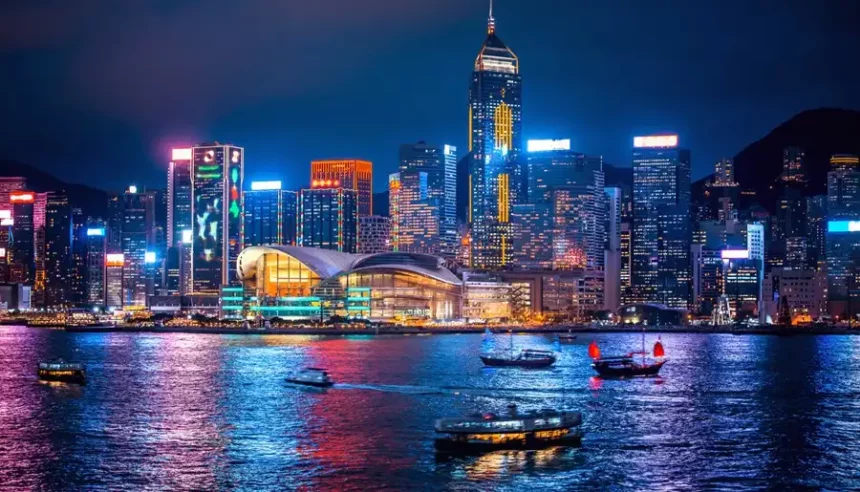Last month, 35-year-old Simon Friend was conducting business from his Amsterdam home when he overheard rumors that Hong Kong might soon reopen to the outside world.
Friend, a fan of the Hong Kong Rugby Sevens, the largest sporting event in the city, couldn’t wait to reserve a flight.
The competition, which runs from November 4–6, is taking place for the first time in two years thanks to Hong Kong’s lifting of some of the tightest COVID-19 restrictions in the world, such as the requirement for new entrants to stay in hotels under quarantine.
“This will be my 25th Hong Kong Rugby Sevens, it’s safe to say I’m a big fan,” Friend said.
“It’s coming up to two years since I’ve seen friends and family there. No hotel quarantine plus being able to attend the Sevens was a no-brainer for me. A win-win.”
“The Sevens is hands down the best party of the year in Hong Kong, every year,” he stated. “It’s the best reason to have a few drinks and to get dressed up in fancy dress and party.”
Amid concerns for the city’s standing as a global financial center, the government of Hong Kong is hoping that the athletic event, combined with a high-profile banking institutions gathering that began on Tuesday, will show that the city is open for business.
Nevertheless, visitors to the city will have to put up with limitations that were long abandoned everywhere, such as numerous COVID tests, mask requirements, and a three-day observing time during which establishments like restaurants and bars are off limits.
Those who do arrive will discover a place in economic decline, its economy pummelling by two shocks: severe pandemic restrictions and a massive crackdown on dissent sponsored by Beijing.
The 2019 pro-democracy rallies were already hurting Hong Kong’s retail and tourist industries when the government’s hostile reaction to COVID-19 caused the city to experience its second downturn in three years.
The city’s “dynamic zero COVID” measures, which included hotel quarantines, greatly hampered business operations and caused a record-breaking migration of highly qualified workers.
While American apparel giant VF Corp and French IT services provider Capgemini shifted their regional headquarters to Singapore, financial companies like Citigroup have shifted some important personnel and activities out of Hong Kong.












